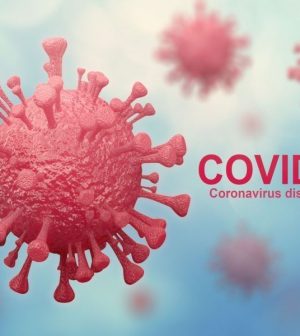- Could Artificial Sweeteners Be Aging the Brain Faster?
- Techniques for Soothing Your Nervous System
- Does the Water in Your House Smell Funny? Here’s Why
- Can a Daily Dose of Apple Cider Vinegar Actually Aid Weight Loss?
- 6 Health Beverages That Can Actually Spike Your Blood Sugar
- Treatment Options for Social Anxiety Disorder
- Understanding the Connection Between Anxiety and Depression
- How Daily Prunes Can Influence Cholesterol and Inflammation
- When to Take B12 for Better Absorption and Energy
- Epsom Salts: Health Benefits and Uses
Infected People Gain Long-Lasting Immunity Against Coronavirus: Study

People who’ve had COVID-19 may have long-term immune protection against new variants of the virus, but researchers say vaccination remains the best safeguard against reinfection.
Their small new study analyzed blood samples from 24 people whose COVID infections ranged from symptom-free to severe enough to send them to the hospital. While those who had mild or no symptoms didn’t always have SARS-CoV-2-specific antibodies in their blood, all 24 had patrolling immune cells called memory B cells that produced SARS-CoV-2 antibodies when exposed to the virus.
“We think these results give us real reason for optimism,” said senior author Dr. Bill Messer, an assistant professor of molecular microbiology and immunology at Oregon Health & Science University.
“The current variants of concern are not likely to truly escape the immune system of people who have recovered from infection,” Messer said in a university news release.
As long as 11 months after infection, these memory B cells not only appeared to react to the original virus, but also recognized so-called variants of concern. The findings were recently published in the Journal of Infectious Diseases.
But researchers said it’s not possible to say for sure whether the B-cell response they discovered would actually provide an effective immune response against virus variants.
Messer stressed that vaccination offers the best protection against reinfection, and also offers the best protection against serious illness or death for people who have not had COVID.
“We probably don’t have enough longitudinal data at this point,” said study lead author Zoe Lyski, a graduate student in Messer’s lab. “These data do allow us to think optimistically about handling the variants. It suggests that if someone is exposed to a variant of concern, the memory B cells generated by vaccination or natural infection are poised to respond.”
More information
There’s more on COVID-19 reinfection at the U.S. Centers for Disease Control and Prevention.
SOURCE: Oregon Health & Science University, news release, Feb. 28, 2022
Source: HealthDay
Copyright © 2026 HealthDay. All rights reserved.










